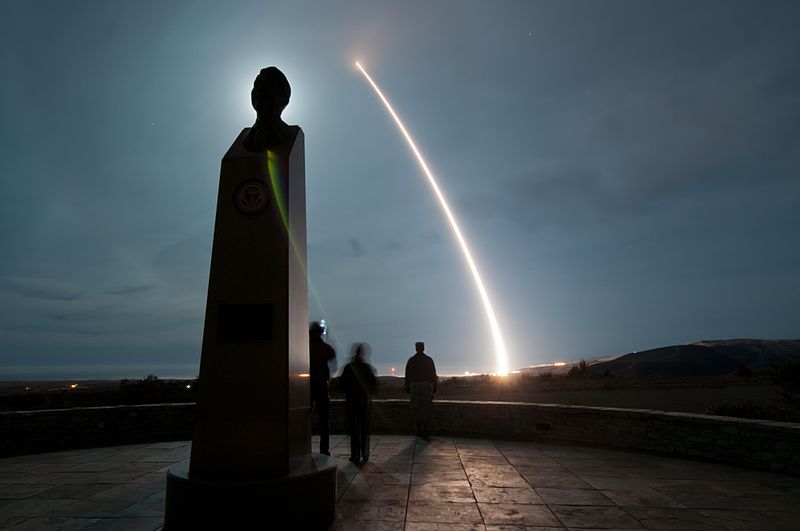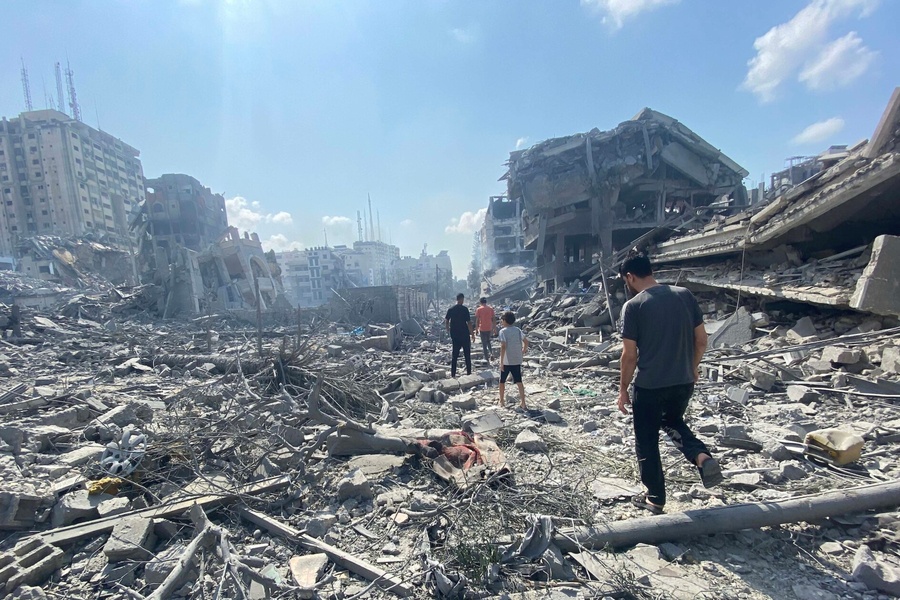One Year From Expiration, 'New START' Remains in Limbo
Increased tension between the United States and Russia, coupled with policy uncertainty in Washington, has thrown the nuclear arms agreement’s extension into doubt.

Published by The Lawfare Institute
in Cooperation With

Even though the New START Treaty expires in less than a year, parties reached no agreement on its future during the recent U.S.-Russia security dialogue in Vienna. New START is the only nuclear arms agreement in force between the United States and Russia, and it has been responsible for a 30 percent reduction in deployed nuclear warheads since its signing. The treaty, which expires on Feb. 5, 2021, stipulates that it may be extended at any time for up to five years. Yet increased tension between the United States and Russia, coupled with policy uncertainty in Washington, has thrown its extension into doubt.
New START entered into force in February 2011. Signed as part of then-President Obama’s “Reset” with Russia, it sets aggregate limits on deployed nuclear warheads and their launching mechanisms. It also contains a verification regime that includes 18 on-site inspections each year to promote transparency between the parties. As of December 2019, the U.S. certified that Russia remains in compliance with the agreement. Russia, however, has questioned U.S. compliance with procedures to convert some weapons launchers from nuclear to conventional-arms capability.
American and Russian officials penned New START at a time when it seemed the countries could finally work together for mutual benefit. Former Ambassador to Russia Michael McFaul described the palpable excitement in the White House after New START’s ratification: “At that point in [President Obama’s] tenure ...[,] the new treaty might have been his greatest foreign policy achievement.” McFaul wrote that he had hoped “missile-defense cooperation and [Russia’s] WTO [World Trade Organization] accession” would come next. But U.S.-Russia relations faltered in 2014 when Russia annexed Crimea and intervened in Eastern Ukraine. Relations have not improved, but New START—a vestige of Obama’s “Reset”—remains for the moment.
While Moscow has long desired to extend New START, Washington has been hostile to the idea. In his first phone call to Russian President Vladimir Putin, President Trump labeled New START one of Obama’s “bad deals” that needed reconsideration. As national security adviser, John Bolton said an extension of New START was “unlikely” given that the treaty has no limits on tactical or nonstrategic nuclear weapons. Bolton also wanted to bring China into the treaty’s renegotiation, arguing that “bilateral strategic arms negotiations don’t make sense when you’re in a multipolar nuclear world.”
Bolton no longer serves in the Trump administration, but his approach to New START lives on. In October 2019, Trump indicated his desire to bring China into a future deal. The president made similar comments on bringing more countries into the Intermediate-Range Nuclear Forces Treaty too, before scrapping it in February 2019. In December 2019, Secretary of State Mike Pompeo stated in a joint press conference with Russian Foreign Minister Sergey Lavrov that “the conversations need to be broadened to include the Chinese Communist Party, but they need to be broadened as well to encompass the full range of instruments of power that can create [] strategic instability[.]” Christopher Ford, the assistant secretary of state for international security and nonproliferation, echoed Secretary Pompeo, noting that while Russia is producing five new dangerous strategic delivery systems, only two are covered under the New START framework. After the January security dialogue concluded, Ford tweeted that he wished China had been there too.
With neither China nor Russia particularly receptive to American proposals, onlookers could be forgiven for asking, “What’s next”? After the recent U.S.-Russia strategic security dialogue, even the Russian representative, Deputy Foreign Minister Sergey Ryabkov, admitted that he wasn’t quite sure what Washington wanted.
Indeed, the U.S. position has been confusing. Despite American statements casting doubt on the possibility of extending New START, other reports suggest some players disagree. In 2018, the State Department’s Bureau of Arms Control, Verification and Compliance published a report entitled, “Report on the Reasons That Continued Implementation of the New START Treaty Is in the National Security Interests of the United States.” Recently, the vice chairman of the Joint Chiefs of Staff, Gen. John Hyten, testified, “I’m a big supporter [of the treaty] .... When it comes to nuclear weapons and nuclear capabilities, that bilateral, verifiable arms control agreements are essential to our ability to provide an effective deterrent.” The previous vice chairman of the Joint Chiefs, Gen. Paul Selva, also testified, “[New START is] a bilateral, verifiable agreement that gives us some degree of predictability on what our potential adversaries look like.”
Finally, while some analysts discuss New START’s extension in zero-sum terms (to extend for five years or not), technically, New START may be extended up to five years. New START’s language marked a departure from the START I and START II treaties, which allowed for extensions only in five-year increments. Thus, the parties could legally agree to a shorter-term extension and briefly defer the question of the treaty’s longer-term status.
In the end, political appointees—not generals or career State Department officials—will determine the final policy. Given New START’s high-profile nature, President Trump will certainly be involved (with all of the idiosyncrasies that entails). While analysts urge the administration to extend or not extend the treaty, a clean-cut extension deal can happen “with the stroke of a pen.” The administration could wait many more months and still be able to act. Or it could decide not to act at all.





